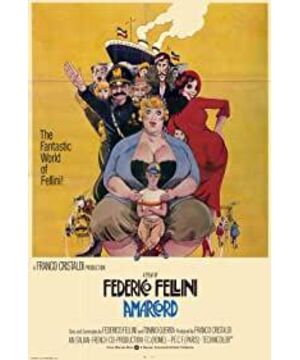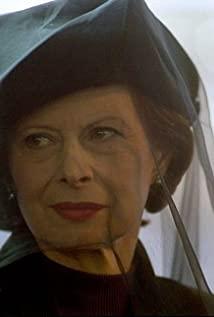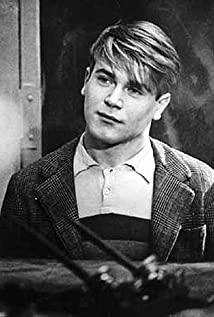This film always reminds me of Tonadore, because he is also Italian, and Tonadore inherited the Italian neorealism, just like "Baharia", it is also a story about a city, a family , but it runs through the male protagonist's life, and this Fellini autobiographical film is all year round. Just like "The Beautiful Legend of Sicily", it depicts the restlessness of a group of ignorant teenagers about their youth. I have to say that the dubbing master of this film, Nino Rota, worked with Fellini for more than 20 years, and also paid tribute to the soundtrack of this film in Tonadore's "Paradise Cinema", I still remember When Duoduo returned home, there was a still of "The White Chief" hanging in the room his mother had cleaned up for him, and Fellini influenced generations of filmmakers.
The campfire was full of dust and bacteria, and everyone in the town cheered because it meant spring was coming. So everyone came to the bonfire party, burned the witches, removed the cold, and welcomed the spring. In Fellini's view, this complicated group show was just a matter of hand, from everyone looking at the graceful Gladiska, to the mischievous teenager setting off firecrackers to scare her, from calling Ronald Coman to looking at her. Firewood place. In one go, with ease. In my opinion Fellini is an excellent conductor.
Naughty and mischievous depicting a group of delinquent teenagers making trouble at school, and laughing constantly, it may also be the director's attitude towards his youth and frivolity. And the boy Tita has never been loved by his father. He went to the church to repent, but his heart was extremely blasphemous. What burst out was only the original sexual desire. Because women with big breasts and fat buttocks appeared in the film many times, there were bad boys who masturbated collectively. play.
Fascism At this time, the country is in a fascist dictatorship, and the school also participates in the celebration. The teenage fascists want to salute Mussolini composed of flowers, but the fat Marconi fantasizes that Mussolini is a priest, and for himself and his beloved daughter. The classmates held a wedding ceremony, and the seamless connection of the two marches is not very good. The next is the "Internationale" from the phonograph on the clock tower. The officer's method was to evacuate the crowd and then collectively shoot at the clock tower. Because Tita's father was reported for inappropriate words, the officer brutally "educated" him. Very straightforward performance of the brutality of fascism. The Grand Hotel, which is called the "Old Lady" by the interpreter, is the most upscale place in the city. As for why it is called the Old Lady, it is nothing more than incapable of operating and then abandoned. Here is a specific description of Gladyska who came to see a certain prince. What this middle-aged woman yearns most is to marry a dignitary. Whether she often goes to the cinema to watch love movies, or later complains on the boat, she seems to be like this. A hope, as Tita's dream lover, almost everyone in the town can't be in her eyes. Here, Fellini naughty added a paragraph. A Muslim nobleman led thirty wives and concubines to the hotel. The narrator knew that the rooms of these wives and concubines were tightly locked, but the hawker Bixin said that he came to the rooms of these wives and concubines and saw the most beautiful The picture is the so-called "exotic style", two versions of a story is a common method for Fellini to ridicule others.
The peacock flying in the snow seems to herald something good or bad. The surreal technique is undoubtedly Fellini's best way of expressing. The fish all revealed absurdity. Emile Kusturica is undoubtedly a master of Fellini's style, the surrealistic behavior of animals, inseparable from the carnival of wine and dancing. Followed by the death of Tita's mother, the process of holding a funeral, and finally Tita was alone by the sea, watching the dust and bacteria floating in. Fellini's ending is not the best, only you can't think of it. It can also be said that the biggest highlight of the Fellini-style ending is its innovation and unique charm. Take "Night of Kabylia" as an example, Kabylia, who was deceived time and time again, walked out of the woods in disappointment, came to the road, and met her. After arriving at a group of happy men and women, Kabylia chose to continue to love life after being moved by the joy. Another example is the male protagonist in "Women's City" who wakes up from the train, only to find that the women next to him are laughing. This is an open ending. It may be a dream, or it may be tricked by these women. At the end of the film, the boy's sweetheart, Gladyska, got married, but he didn't come to say goodbye, the sky was dusty again, and spring was coming again.
View more about Amarcord reviews










